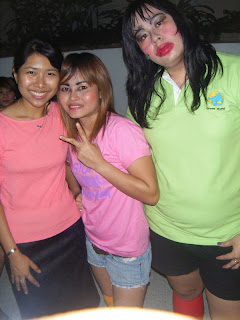A reflective writing after the read of Community-Service Pedagogy(writen in 2004)
First of all, I thought I understood what Community-Service or Service learning was when I started reading the first two pages of a textbook. I thought service learning was somewhat volunteer service or an intership. Students would search for their own community nonprofit and social service agencies and assist them to meet their needs. By doing so, students also learn how to deal with all the tasks they are assigned. Like my situation, I worked for a tourist police department as an intern for a two-month period without getting paid. Therefore, I take this as a service-learning. On the contrary, I came across a paragraph at the bottom of page 134 where it said that "Service learning is not national service, community service, or volunteer service or voluntrism, not is it the same as an academic internship or field placement." This relly bewildered me; I stopped reading for a moment; and thought about the distinction between service-learning that I understood and service-learning that Waterman explained. Now, I recalled my understanding about service-learning again. I still thought that it was some kind of services such as the Martin Luther King Day of Service, or tutoring and mentoring projects, in this sense, is not just that students helping communities willingly to meet their needs and their purposes, but students also gain knowledge, skills, and perspectives that broaden their understanding in the "real world writing."
Then, I cam across a passage where Julier mentioned that "Ira Harkery and Lee Benson also see service learning as a pedagogy derived from a theory of democratic education and schooling developed by John Dewey to replace Plato's aristocratic theory of education and society" (134)
After I finished reading the chapter, I had many questions in my head about how service learning can be employed in a classroom, how teachers can assign projects to students based on their various interests, how students can manage their time working for communities, and what the class will be like? One thing that I know of is that teachers are going to have to work harder to have to carefully assign the projects based on their values and other circumstances. Also, there is one more thing that I still doubt with, which is about the outcome(s)that students will get from the "real world writing" or communities. In other words, what would students really get from service learning, and how it would benefit in their writing class?
A recent reflective writing on the project with students (2008)
To be continued!
Monday, December 22, 2008
Service Learning: What a fun, productive (yet exhusted) way to teach!
Subscribe to:
Post Comments (Atom)


























No comments:
Post a Comment